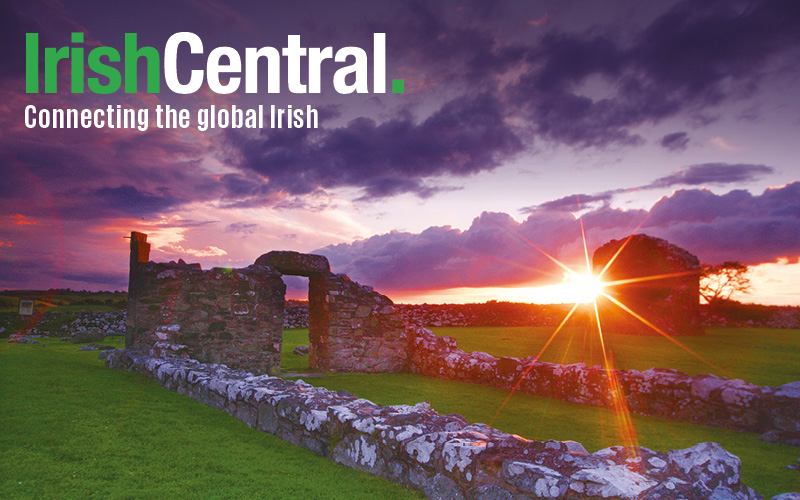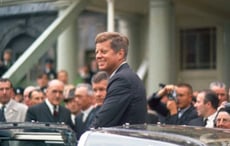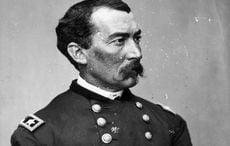The Catholic Church in Northern Ireland has admitted that a priest was the leader of an IRA unit that exploded a bomb in 1972 that killed nine people, five Catholics and four Protestants including an eight -year-old girl. Thirty people were injured.
Police ombudsman (overseer) Al Hutchinson has verified that the Royal Ulster Constabulary the British government and the Catholic Church covered up for the priest, Father James Chesney (left) who was never charged and moved to a new parish.
Hutchinson revealed that the RUC at the time had top-grade intelligence that Chesney was a senior figure in the IRA unit that planted three car bombs in the County Derry village of Claudy in 1972.
The then Catholic primate of all Ireland , Cardinal William Conway, and the then Northern secretary William Whitelaw, were made aware by police of Father Chesney’s alleged involvement.
Chesney was subsequently moved to a parish in Co. Donegal but was never arrested or interviewed about the bombing or any other IRA activity. He passed away in 1980.
The cover up was discovered during a search through old cases by a Police Service of Northern Ireland investigator Sam Kinkaid.
Hutchinson has accepted the new documentation proves Kinkaid’s suggestion of a cover-up involving the RUC, the British state and the Catholic Church.
The current Catholic primate Cardinal Seán Brady has commented on the report today. Father Chesney was sent to to a Donegal parish under the jurisdiction of the late Bishop of Derry, Dr Neil Farren.
Bishop Edward Daly, was appointed to the diocese of Derry and Raphoe in the spring of 1974. Bishop Daly has also made a statement.
Kinkaid’s report showed that Cardinal Conway and an unnamed senior RUC officer were briefed on the attack right after the bombing.
As a result, Cardinal Conway held direct discussions with Northern Secretary William Whitelaw on the issue in December 1972, during which the Northern secretary made clear his knowledge and disgust at the priest’s involvement.
Conway was apparently worried that news of of Father Chesney’s involvement would allowed loyalist paramilitaries to declare all Catholic priests “legitimate targets”.
The IRA had attempted to issue a warning from nearby Dungiven, but were unable to do so because an earlier bomb had damaged the telephone exchange.
Standing outside the village hotel where the third device detonated, survivor Paul O'Kane recalls that day nearly 40 ago.
"There was absolute devastation," he told Sky News.
"It was like something you would see on the news now in Baghdad.
"There was smoke, there was a motorbike on fire, cars on fire, there were no windows left and there was nothing but moaning and groaning.”
Today Northern Ireland secretary, Owen Paterson, said: "For my part, on behalf of the government, I am profoundly sorry that Father Chesney was not properly investigated for his suspected involvement in this hideous crime, and that the victims and their families have been denied justice.
He added: "My anger at the actions of those responsible for the attack is matched in strength by my sorrow that the survivors of the atrocity and the relatives of the dead did not see those responsible brought to justice for their crimes.
"I recognise, of course, that all those involved in combating terrorism at the time were making decisions in exceptionally difficult circumstances and under extreme pressure."
In a joint statement Seán Brady, the archbishop of Armagh, and Séamus Hegarty, the Bishop of Derry, described the bombing as "an appalling crime", saying: "We accept the ombudsman's findings and conclusions."
They added: "Throughout the Troubles, the Catholic church, along with other churches in Northern Ireland, was constant in its condemnation of the evil of violence. It is therefore shocking that a priest should be suspected of involvement in such violence.
"This case should have been properly investigated and resolved during Father Chesney's lifetime. If there was sufficient evidence to link him to criminal activity, he should have been arrested and questioned at the earliest opportunity, like anyone else. We agree with the police ombudsman that the fact this did not happen failed those who were murdered, injured and bereaved in the bombings."




Comments